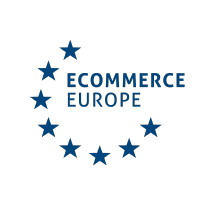Ecommerce Europe’s Recommendations

Ecommerce Europe’s Recommendations
14 September 2023
Ecommerce Europe’s recommendations on addictive design of online services and consumer protection in the EU single market
1. Initial remarks
Ecommerce Europe is the voice of the digital commerce sector in Europe. Through our national associations we represent more than 150,000 companies selling goods and services online to consumers in Europe. Ecommerce Europe acts at the European level to help legislators create a better framework for online merchants, so that their sales can further grow. We are the European platform for digital commerce, where national associations, company members and business partners can network and share best practices, exchange information and knowledge on issues concerning their business. The diversity of our membership brings together a combination of different business models which have proven to be invaluable during the COVID-19 pandemic as they helped consumers access products safely during the lockdown. Nowadays, e-commerce plays a key role in the European society and economy, for example by stimulating the growth and digitalisation of (small) businesses, by giving consumers access to a wide range of offers, even from abroad, by giving used products a second life and so on. When it comes to protection of EU consumers, Ecommerce Europe believes that the EU already possesses a very complete and flexible legislative framework, in which the existing EU consumer rules, complemented by the new rules introduced by the Digital Services Act and Digital Markets Act, and those soon to be introduced by the AI Act and Data Act, can tackle the challenges brought by the digital age. However, we do recognise that important improvements should be made in the field of enforcement, interpretation, and harmonisation of existing legislation.
2. Marrying consumer protection with business-friendly solutions
The recent European Parliament own-initiative report on Addictive design of online services and consumer protection in the EU single market1 brought to our attention the fact that there are some misunderstandings in the assessment of the tools used by e-commerce platforms. In our opinion, it is important to recognise that there is a large difference between addictive design and behavioural design or personalisation. Behavioural design and personalisation merely aim to improve consumers’ online experiences by providing personalised and relevant content. Tracking users’ preferences for optimal design and personalisation is not inherently meant for financial incentives. In fact, for many online services, design preferences allow users to effectively use a platform. Without recommendations, consumers may end up buying too much online as it becomes harder to find the product they are looking for and may end up spending more time on subscription-based platforms, as the platform cannot be tailored to their preferences. The recent Commission’s Communication from June 2023 on a Comprehensive Approach to Mental Health2 takes note of mental health risks online. To this end, the Communication specifically references the DSA and the Better Internet for Children (BIK+) strategy as policy setting out rules and guidelines to better protect minors and users in general online and how it will help combat “the design of online interfaces which intentionally or unintentionally exploit the weaknesses and inexperience of minors, or which may cause addictive behaviour”3. Furthermore, we find it important to highlight that the draft Report does not take into account the different business models of various online businesses. The proposed one-size-fits-all approach proposed in the draft Report, if put in practice, would have disproportionate effects on certain sectors over others. We consider it crucial to take into account the differences between the plethora of online actors. To this end, we take issue with the call for a ban on interaction-based recommender systems and to display information in chronological order. For example, doing so would disproportionately hurt e-commerce businesses and would in fact have the opposite effect by increasing the time spent by consumers online in order for them to find the products they are looking for. Ecommerce Europe acknowledges the trend that individuals are increasingly spending more time on certain online services, such as social media and certain online platforms, which follow a data driven business model. We also acknowledge that there is an issue with minors using services that are provided by entities following a data driven business model supported by advertising. We understand that sectoral regulatory action might need to be taken in these cases. In addition to this, we support the proposal to create a list of good practices of design features that are not addictive or manipulative and ensure users are fully in control and can take conscious and informed actions online without facing an information overload. As Ecommerce Europe, we are very keen to engage with the Rapporteur, Shadows, other MEPs and European Commission to put together such a list of practices.
3. Closing remarks
We encourage policymakers to consider any reflection related design choices, colour schemes and marketing strategies to respect already existing legislation. Many practices are already regulated and banned by the Unfair Commercial Practices Directive. We remain at policymakers’ disposal to provide further insights into the business usage of behavioural design and the relative policy developments.
____________
1 Draft Report on addictive design of online services and consumer protection in the EU single market; https://www.europarl.europa.eu/doceo/document/IMCO-PR-750069_EN.pdf
2 https://health.ec.europa.eu/system/files/2023-06/com_2023_298_1_act_en.pdf
3 Ibid, page 9
More on LinkedIn
Ecommerce Europe
logistic-natives e.V.
Albrechtstraße 13
10117 Berlin
Deutschland
Tel.: 01622561001
E-Mail: florian.seikel@logistic-natives.com


